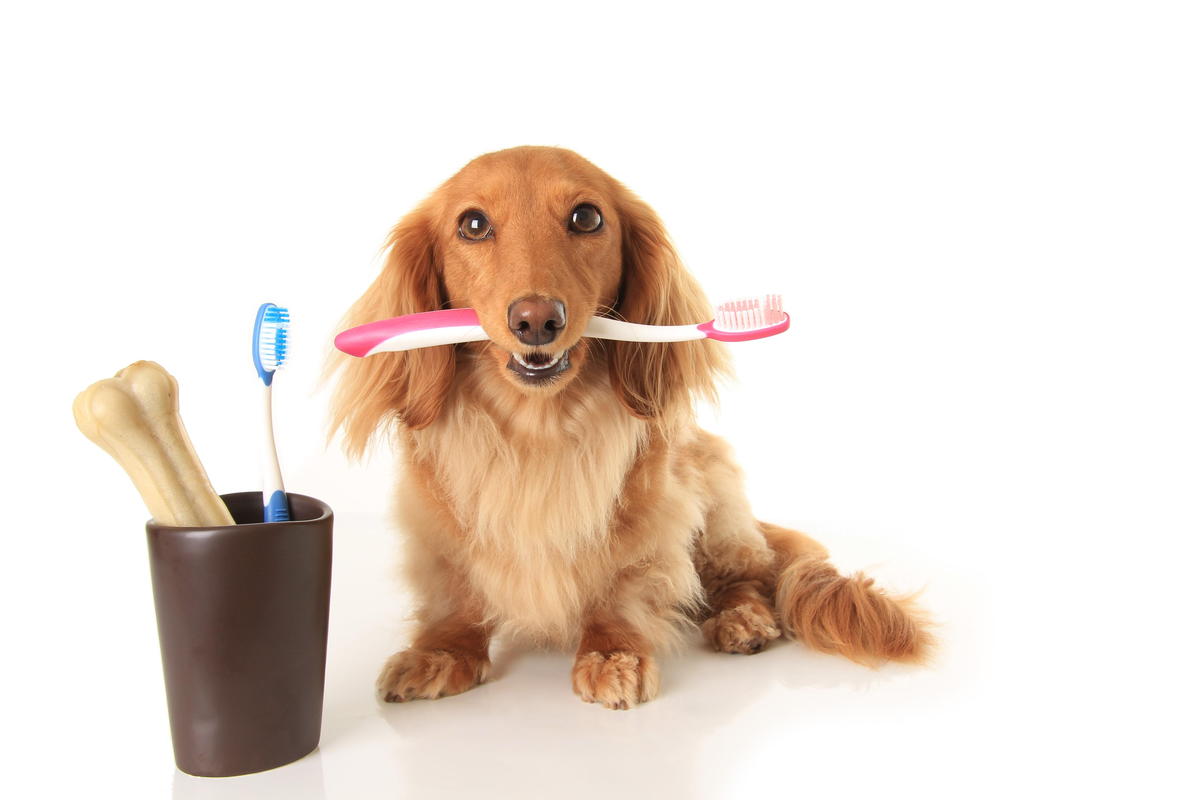The importance of oral home care for your pet
- posted: Jun. 23, 2016
The importance of oral home care for your pet
Are you noticing a foul odour to your pet’s breath when you cuddle close? This is not normal and is likely the result of dental disease. Just like with people, pets accumulate daily plaque on their teeth. If the teeth are not brushed, this plaque aggregates into calculus/tartar (hard yellow material composed of minerals and bacteria) that will cover the enamel (white tooth surface). Your pet’s breath is smelly because of the bacteria in the plaque/tartar. Tartar continues to accumulate and ultimately will creep up under the gumline causing bone loss around the tooth roots. This results in periodontal disease which places the tooth as risk for infection, pain and mobility. Once a tooth is infected and/or mobile, it will need to be either extracted or referred to a specialist veterinary dentist for restoration (e.g. root canal therapy).
The good news is that there are several ways in which we can help to prevent periodontal disease from developing in pets. This starts at home with you, the owner, performing oral home care! The single most effective preventative tool is brushing your pet’s teeth as often as possible (daily is best). Regular brushing removes the daily plaque that leads to tartar accumulation. There are a variety of techniques to successfully brush your pet’s teeth. A regular tooth brush, finger brush or piece of gauze are all potential options. Our technicians are happy to book you and your pet in for a courtesy oral home care consult to review these techniques. As for toothpaste, it is important that you use a dog/cat specific toothpaste to improve palatability and avoid toxins such as xylitol present in human toothpaste.
Other oral homecare options include using a dental diet kibble such as Royal Canin Dental or Hill’s t/d. These diets are designed and clinically proven to aid in reducing daily plaque buildup on your pet’s teeth. There are also a several dental chews and a water additive we carry that have been clinically proven to reduce daily plaque accumulation. Please call us to discuss which option would suit your pet’s needs best.
Dr John Booth

Location
Find us on the map
Office Hours
8:00 am - 9:00 pm
8:00 am - 9:00 pm
8:00 am - 9:00 pm
8:00 am - 9:00 pm
8:00 am - 9:00 pm
9:00 am - 5:00 pm
Closed

